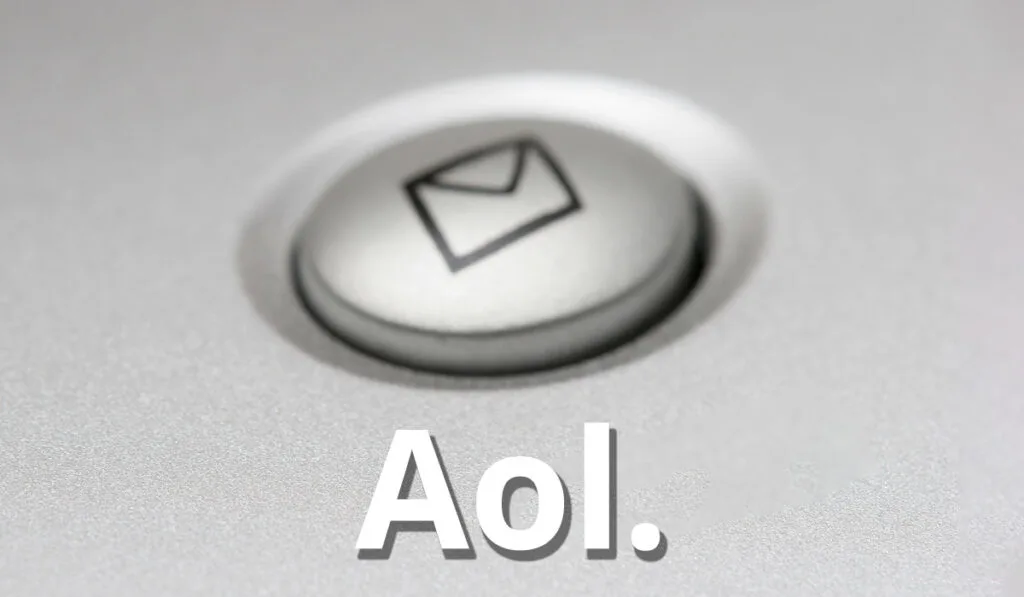AOL (America Online) is an online service provider that we all remember from the last century, and it’s still one of the largest internet companies in the United States today. However, despite its success, AOL begin to shrink as broadband slowly took over dial-up, introducing new technologies to consumers. So, will AOL email be shutting down in the face of steep competition?
Despite rumors that AOL email is shutting down, there’s nothing to suggest the email services will be discontinued. The equity firm Apollo Global Management bought AOL in 2021, and it’s very likely that they will still support the email service, allowing AOL mail users to access their inbox.
Let’s take a closer look at AOL mail, from the history of the service to who owns it now and what you can expect in the future.
Is the AOL Email Service Shutting Down?

Due to the sale of the company and the steady decline in relevance (thanks to the rise of broadband and AOL’s history as a dial-up service), there are many rumors circulating that the AOL email service will shut down.
AOL hasn’t confirmed anything, nor has Apollo, which bought the service from Verizon in 2021. However, it wouldn’t be too much trouble for Apollo to keep the email service up and running. It’s very likely that the servers will simply transfer over to the new company.
As nothing is guaranteed, it’s still a good idea to save any important information you may have in that email account and transfer it elsewhere.
How Long Has AOL Been Around?
AOL was established in May 1985, which means it’s been around for over three decades and is one of the longest-running internet providers. Initially, it had a pay-per-hour system where users could pay to access the internet based on time, but it quickly switched to a dial-up subscription system.
Although everyone has always called it AOL, it only switched to this name officially in 2006. Previously, it stuck to its full name of America Online.
As well as the email and internet, it was famous for AIM — AOL Instant Messenger. This service ran from 1995 to 2017, when it was officially discontinued. This, much like their other services, was due to declining popularity as most people had much better options and AIM’s features were rudimentary in comparison.
AOL Desktop was what most AOL users will be familiar with: an internet browser, a media client, and the messenger all combined into one window. Older users will remember the dial-up noise as it connected!
The company had a downward turn as internet consumers found better and faster options. It did see a brief uptick in profit when its advertising outweighed its lack of subscribers, but it’s still been a rocky road for the company.
Who Is Going to End Up Owning AOL?
Initially, Verizon bought AOL for $4.4 billion in 2015. However, last year they announced that they were selling their entire media group (AOL included) to Apollo Global Management for $5 billion.
Verizon claims they want to focus more on technology than media, meaning Yahoo is also being sold to Apollo Global Management (another service that seems as if it was once much more popular than it is now).
What Will AOL Look Like in the Future?
Apollo Global Management hasn’t made any announcements about what they intend to do with AOL, so we can only speculate about what it will look like in the future.
However, AOL claims that it still has many users who use its dial-up services. It no longer charges for email, but there’s clearly still some profit coming in from the dial-up subscriptions.
While Apollo Global Management would be well within their rights to shut down the service, it may cause so much uproar that they’ll choose not to. It’s fair to be cautiously optimistic that AOL users will be able to keep their services.
This, of course, also depends on how much research Apollo does and what they find. While there are many AOL subscriptions still active, there’s no current way to tell how many of them are being used and how many people simply haven’t bothered to cancel their stagnant service.
AOL no longer charges for email, so those with AOL.com emails address can keep using them right now. Again, Apollo may choose to shut these down, but it’s more likely they’ll keep servers up and running so people can keep accessing these addresses.
All we can say for sure is that AOL will probably not return to its once-former glory. Although its internet suite, including the media player and instant messenger, was impressive for the time, they’re very much outdated now.
The likelihood is that AOL will have to focus on advertising to keep making revenue rather than subscription services unless they seriously overhyped what’s involved in said services.
